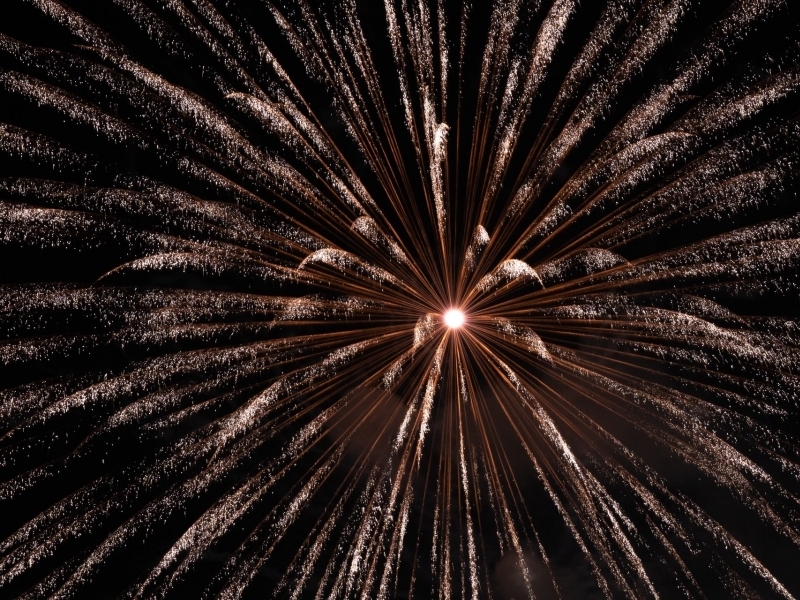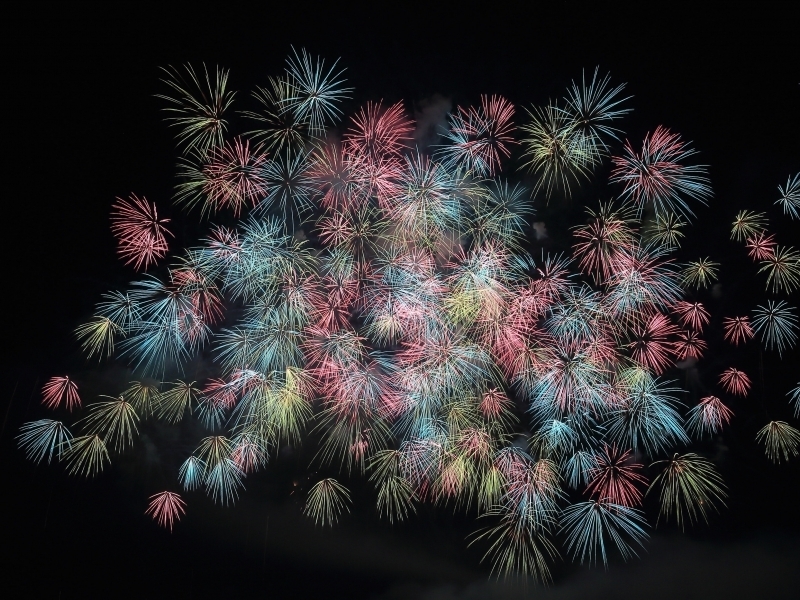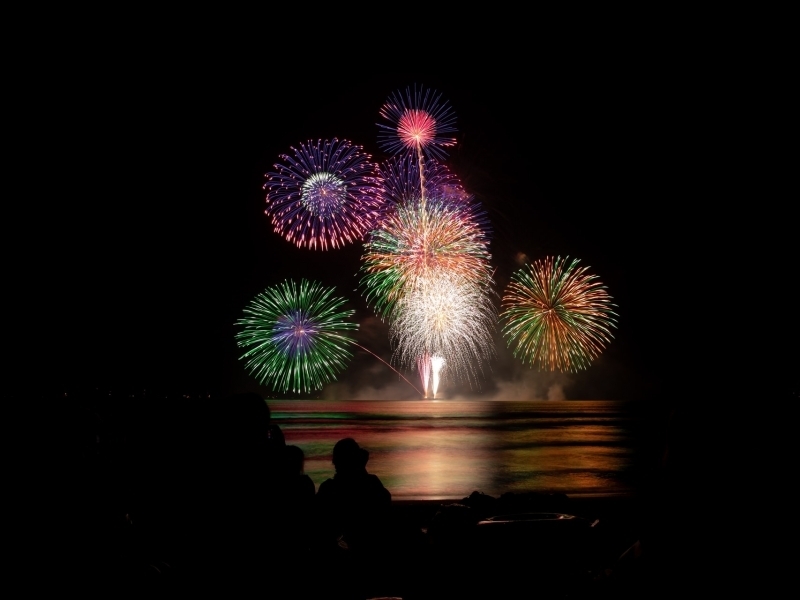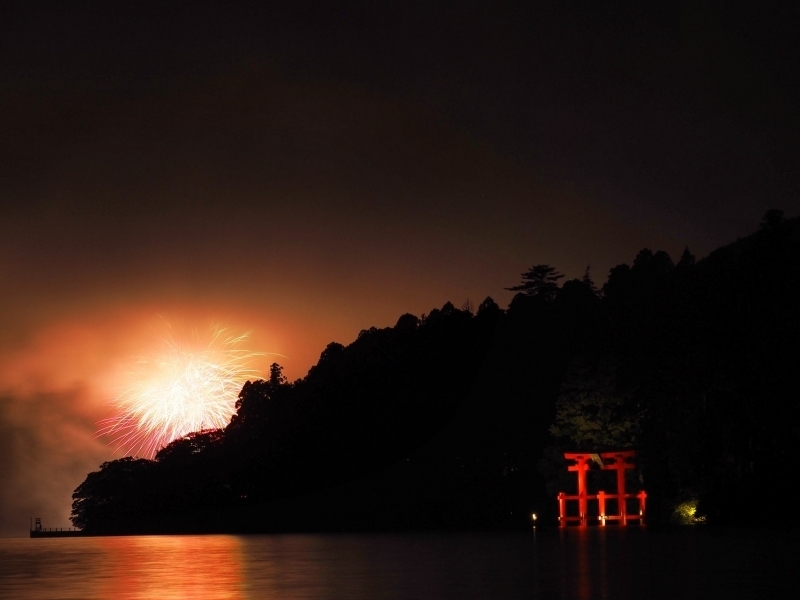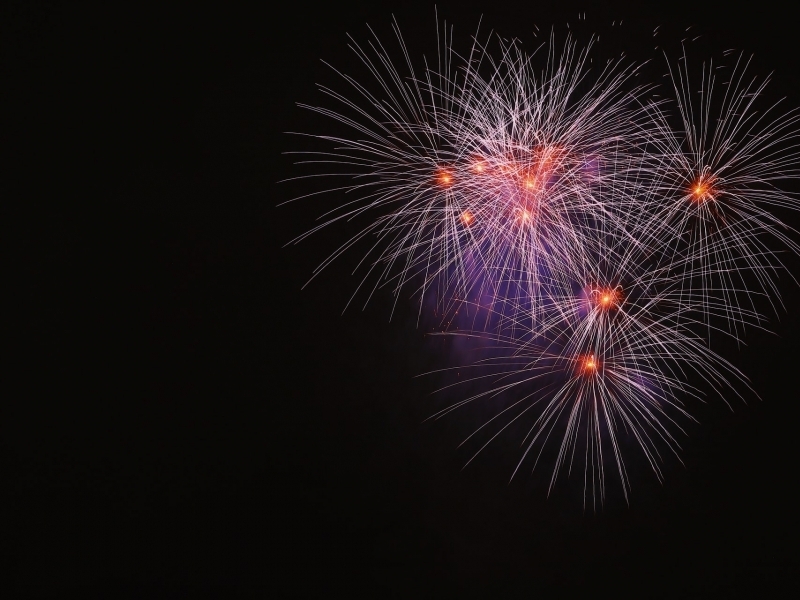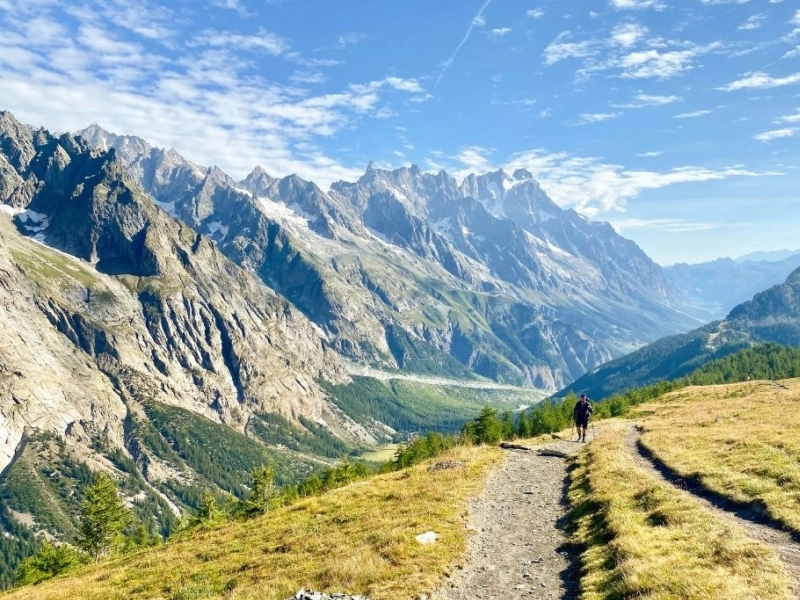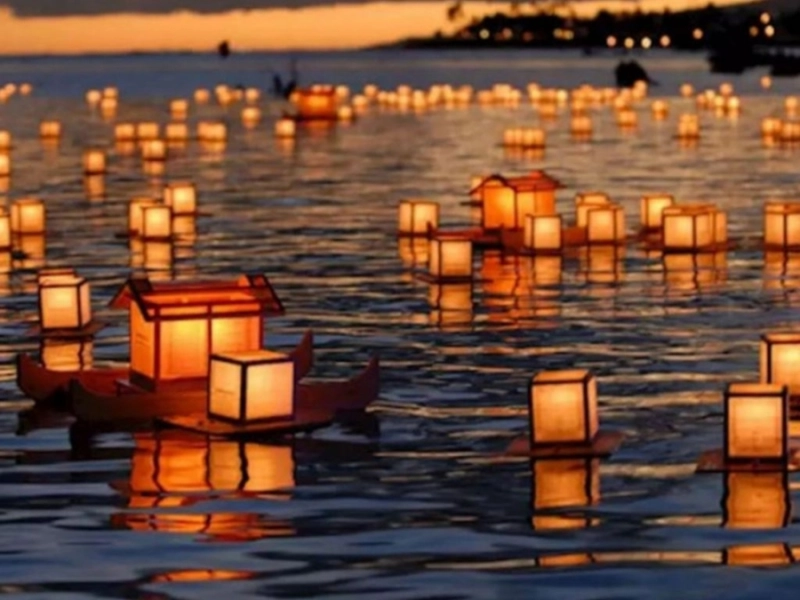News and Testimonials
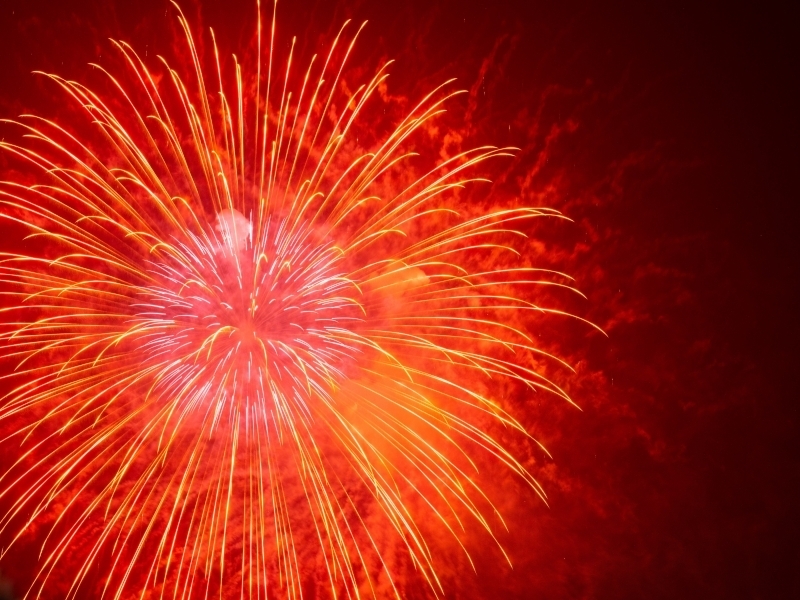
Hanabi Festival- what’s special about Japanese fireworks
Dating back to the 18th century – Hanabi festivals – Japan’s tradition of summer fireworks now are more popular than ever. We all have our fireworks events back home, be it for special holidays or other big events. But a whole firework season I’ve never heard of before coming to Japan.
Firework events take place all across Japan from late July until August. Taking place around Obon, Japan’s Festival of the Dead, the original purpose of the tradition was to ward off evil spirits and demons.
Nowadays, what is drawing the crowds of hundreds of thousands of spectators is not the fear of demons, but the sheer scale and impact of these events.
History of summer fireworks in Japan
Summer fireworks in Japan are not as recent as you might think. The custom started around 250-300 years ago.
The tradition is rooted in the Obon celebrations, Japan’s Festival of the Dead which is said to date back to the 8th century. As part of the ceremonies fires, usually bonfires, are lit to welcome and see off the spirits of the ancestors.
Fireworks were first introduced to Japan around 1600. There is some debate as to when the first fireworks took place in Japan. Whether it was for Masamune Date in 1589 or more likely by Tokugawa Ieyasu in 1613, fireworks quickly gained popularity among the upper class.
While each firework event has its own background story, the very first artistic fireworks for commoners and the beginning of today’s summer firework tradition dates back to the Ry?goku Kawabiraki, nowadays known as the Sumidagawa fireworks.
These fireworks at Sumida river first took place in 1733. The year before the Kyoho famine brought disease and suffering, taking many lives. Tokugawa Yoshimune organized the fireworks, which fulfilled the double purpose of mourning the dead and cheering up the people.
The practice of seeing off the spirits with fireworks kept growing, spreading to other religious and secular events, and grew into the large-scale Japanese summer fireworks we all know, the original roots largely forgotten.
So, the tradition of Japanese people coming together in the summer to enjoy fireworks, and organizers trying to outdo each other is far from recent, but a tradition dating back over 250 years.
Hanabi today
What makes fireworks in Japan special?
1. The festival. As Hanami (cherry blossom viewing) has much more to offer than pretty flowers, Hanabi is not just about fireworks. From the station to the event location the streets will be lined with food stalls selling bento and typical Japanese food. It’s Japanese festival atmosphere at its best.
2.The sheer length. Many of the bigger firework displays last anywhere from 90min to 120 min. I don’t know any other country that can boost even near as many fireworks on this scale.
3.The shape. Most fireworks create round shapes. Apparently, that is due to the packaging, commonly being a round shell. Japan makes an art out of creating multi-colored fireworks in all sorts of shapes. You can find hearts, Pikachu and other cartoon characters, local mascots like deer and many more fireworks unique to Japan.
Hanabi tips
When going to see fireworks bring your Hanabi survival kit, consisting of leisure sheet, food, drink, a trash bag, a sense of direction and a light jacket or shawl for the night.
Feel free to embrace Japanese traditions and go for a yukata, there probably is no better time to ever wear one than to Hanabi festivals. If you are not in mood for yukata, opt for other comfy summer wear, nothing too fancy (you are going to sit on the ground) and shoes you can walk in for at least 30 min (events are often a little remote from the stations and with the crowds you might be on the move for a long time).
As anything popular in Japan, firework events too have a tendency of getting super crowded.
The grounds are wide, so it is recommended to look up starting times and location up in advance to make sure you get to a good spot on time and avoid getting lost. People usually arrive early (hours before the event starts) and reserve their space at the riverside with the ubiquitous blue leisure sheets.
The later you come the more people will be there so you can just follow the steady stream of people. Be warned though that this might carry you to somewhat remote viewing spots.
While the fireworks can be seen from afar, if you want to get a good spot to see them synchronized to the music, come extra early and try to snatch up a place close to the speakers (look for the bleachers set up for special guests and pick either side of the river in that area).
If you don’t mind watching from a distance, then watching from a close-by rooftop is a nice alternative to avoid the crowds. You will see a lot of people standing on rooftops and outdoor staircases, holding their drinks, black shadows against a bright sky.
Where to see fireworks
Fireworks start in the middle of July. The first event held in Tokyo is typically the Adachi Fireworks. With over 120 firework events in and around Tokyo alone, taking place on both weekends and weekdays, as long as you are in Japan during July and August, you will have plenty of opportunities to catch one.
If you want to see the biggest fireworks in Japan, head to Nagano. With over 40.000 fireworks (twice as many as the biggest event in Tokyo) and at least 10 times as many spectators, it is on a level of its own. If you are in Tokyo you will have to make do with about half as many fireworks. That said, even Tokyo’s fireworks are an impressive ensemble of lights and music, lasting well over an hour with not much left to be desired.
Not a summer festival, but to date one of the most impressive fireworks I have seen is the young grass mountain burning in Nara. As the name says, every year on the 4th Saturday of January a whole hill is set on fire. According to legend, the practice started hundreds of years ago, over a border conflict between Nara’s Temples. Nowadays, the local temples and shrine are holding the event jointly.
With all the choice, you can find your favorite event to come back to every year, or keep traveling around and visiting new ones every time.
Whether it’s for the carefully orchestrated show, the festival atmosphere, a quest to take the best pictures, or just the romantic summer night, together with friends, as family or as a couple, everyone seems to come together at Japan’s firework events.

